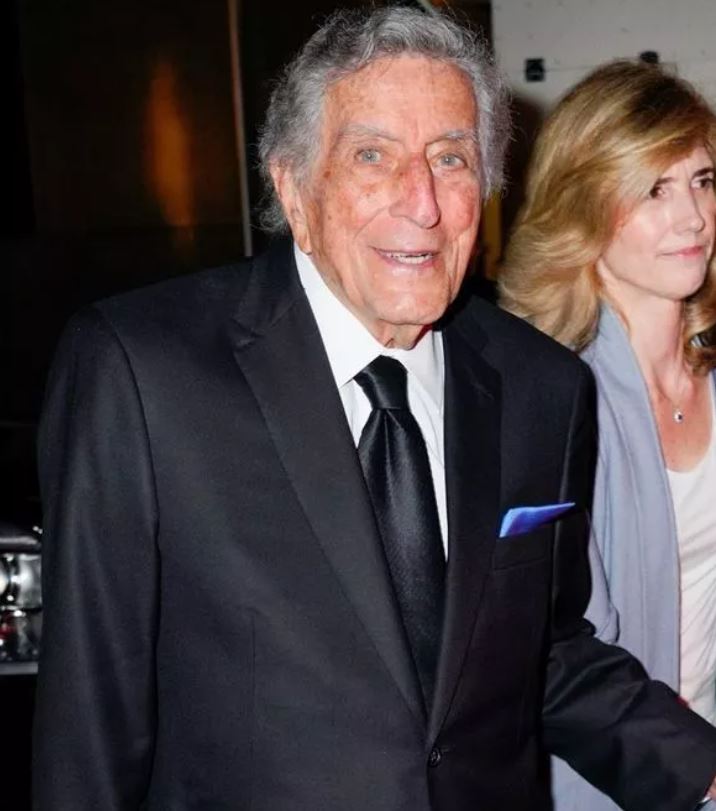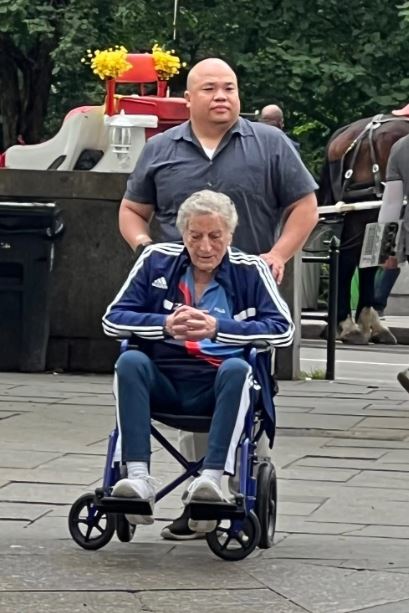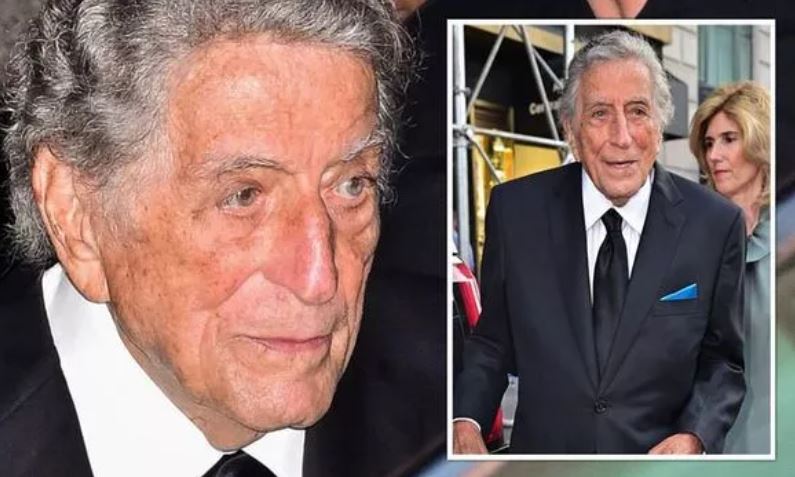Tony Bennett is a jazz and big band singer from the United States who has sold over 50 million records worldwide. At 95, the artist just broke the Guinness World Record for the oldest individual to record an album of new songs. Perhaps more impressively, Bennett worked until August 2021, despite being diagnosed with a degenerative condition.
The singer, who has won 19 Grammy Awards, initially reached the charts in 1951 with his hit song Because of You. Eleven years later, he recorded his hallmark song, I Left My Heart in San Francisco.
However, the world learned in February 2021 that the singer’s health was not in good shape. Bennett’s wife, Susan Benedetto, went out at the time about her husband’s fight with Alzheimer’s disease, which he was diagnosed with in 2016.

The announcement came after the big band great performed one last time with Lady Gaga, with whom he regularly cooperated and toured in 2014 and 2015.
Bennett performed again at New York City’s Radio City Music Hall before retiring due to medical issues.
Benedetto shared details about her husband’s condition when appearing on the famous American television show 60 Minutes with Anderson Cooper.
“He recognizes me, thank heavens, his children, you know, we are blessed in many ways,” she remarked. “He’s pretty nice.”
Bennett’s wife went on to clarify that he may be so eager to continue performing since he is unaware he has the disease.
“He has no idea he has it,” Tony says he’s in the business of making people happy, and he still is. “That’s it,” she said to Cooper.
Dr. Gaytari Devi, who first diagnosed Bennett with the neurologic illness, also appeared on the show with Benedetto, going into greater detail about which parts of the brain the disease has not damaged.

“He knows who he is and how to act like Tony Bennett,” Dr. Devi remarked.
“That’s a section of the brain that is innately programmed in his brain.” It’s also a part of his brain that provides him true meaning and purpose in life, and it’s emotional.
“I mean, another thing that distinguishes music is that it stimulates an emotional area of the brain. Because music is contained in several sections of the brain, including parts of the brain that deal with emotion, it is easy to be moved by it when you hear it.”
As the singer struggled to remember the names of the musicians on stage with him during a performance in 2015, he realized something was wrong.

Benedetto initially assumed that the memory lapse was related to the natural aging process, but Bennett sought medical treatment. Subsequently, footage of Bennett in rehearsals with Gaga showed him becoming “lost and disoriented” at moments, and his speech seemed stalled when he did speak.
Because Alzheimer’s disease is degenerative, symptoms frequently cause a constant loss of thinking, behavior, and social skills, rendering patients unable to operate independently.
Alzheimer’s disease is the most frequent cause of dementia and occurs when nerve cells no longer interact with one another. People with the condition also have fewer chemical messengers in the brain, meaning signals are not sent either.
Memory loss is a common early indication of Alzheimer’s disease, but as the disease develops, deficits worsen, and other symptoms emerge.
Alzheimer’s symptoms can also impact an individual’s personality and behavior, with some becoming depressed, irritable, delusional, or socially withdrawn.
After their album Love For Sale was nominated for six Grammy awards in November 2021, Gaga talked about how “heartbreaking” it is to see Bennett struggle with Alzheimer’s.
“I can’t tell you how much I learned from him or what it’s like to sing with a legend for so many years,” she said. I’ve been singing with Tony for about ten years, and it’s painful to see what he’s going through with Alzheimer’s, and I also want to say to anyone listening who knows someone with Alzheimer’s or dementia who is struggling with it in their lives. If you’re with someone you care about, play some music from their youth, and I guarantee they’ll come to life unexpectedly.”
Although there is no treatment for Alzheimer’s, some studies suggest that listening to music or singing songs can help with emotional and behavioral issues. Music can help people with the disease relieve stress, anxiety, and depression and lessen agitation.








